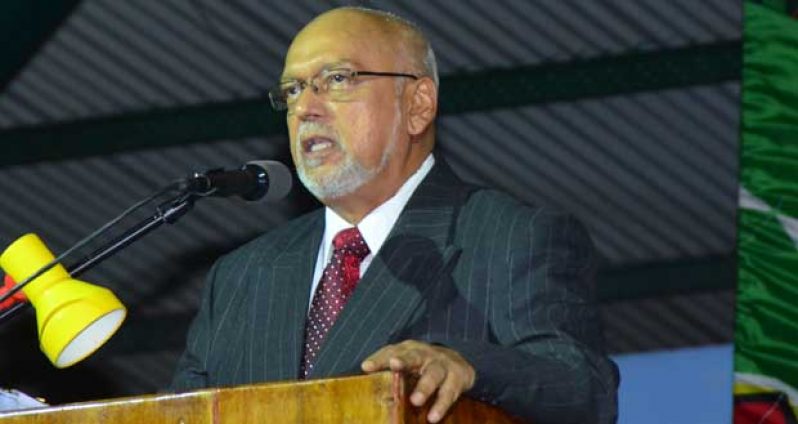–as division grows
Analysis by Rickey Singh
AS the Guyana Government maps its strategies in preparation for the coming “no confidence” from the parliamentary Opposition, as well as chart the course for its own alert of a related snap general election, both sides may need to also pay attention to the unfolding drama over planned significant constitutional changes in Trinidad and Tobago.

There, the 41-member elected House of Representatives will tomorrow start debate on a unique bill to give new meaning to multi-party electoral democracy.
That’s the assurance given by Prime Minister Kamla Persad-Bissessar, leader of the dominant United National Congress (UNC) and
a former Attorney General of the twin-island republic this past Monday when she tabled a pace-setting ‘Constitutional (Amendment) Bill 2014 that, among other provisions, restrict term limits for a Prime Minister as well as parliamentarians.

Additionally, her signature piece of legislation would also give-for the first time in the history of parliamentary democracy in the
entire English-speaking Caribbean-the right of voters in any defined constituency to recall defaulting parliamentary representatives outside scheduled national elections.
Another quite significant provision is for a “run-off” poll in any constituency where contestants, of parties or independents, fail to secure more than 50 per cent of valid votes.
The draft legislation, which coincides with arrangements to celebrate the country’s 52nd independence anniversary on August 31, is based on wide-ranging recommendations from a team of consultants, among them lawyers and constitutional experts.
But controversies have already erupted with Opposition parties, including the main People’s National Movement (PNM), led by Dr Keith
Rowley, expressing strong reservations about the proposed legislation which comes ahead of new parliamentary elections constitutionally due by May next year.
While fierce debates are expected in the House of Representatives–where the Prime Minister’s UNC dominates a People’s Partnership coalition–of significance also is the public silence to date both Government and Opposition over the absence of any mention about plans to end the country’s colonial relationship with Britain’s Privy Council as
Trinidad and Tobago’s final appeal court.
T&T/Jamaica CCJ tango
Consequently, in this 52nd year of its political independence from the United Kingdom, the Government of Trinidad and Tobago has chosen to engage in historic constitutional pace-setting changes but without even an allusion to end this arrangement any time soon in preference to accessing
the Port-of-Spain-headquartered Caribbean Court of Justice (CCJ) as its final appellate institution.
Having followed Jamaica in 1962 as the second CARICOM country to shed its colonial status, Trinidad and Tobago is now the first CARICOM
partner state to introduce legislation with significantly new, if controversial features while, like Jamaica, doing the twist on accessing the CCJ its final court of appeal.
Regrettably, however, the Prime Minister was silent in her presentation of the bill on her Government’s intention about the time-line
to access the CCJ as Trinidad and Tobago’s court of last resort-as CARICOM partners like Barbados, Guyana and Belize have already done and as Dominica and Grenada are on their way to do likewise.
In this context, therefore, like Jamaica, Trinidad and Tobago-which celebrated its 52nd anniversary of political freedom last
Wednesday-continues to lag behind when it comes to breaking the colonial link with the Privy Council in preference for the CCJ as their
court of last resort. What a pity. Perhaps we may yet benefit from a statement this week when Prime Minister Persad-Bissessar speaks on the Constitutional (Amendment) Bill.
The CCJ, as is now widely known among the citizens of CARICOM, was established as an appeal court of last resort for ALL legal
matters-civil and criminal. Further, it is empowered with “original jurisdiction” for settling trade and other disputes-as being done by CARICOM states yet to access it as their court of last resort.
Question of relevance, therefore, is why, when she initiated action for introduction of the very significant Constitutional (Amendment) Bill, the T&T Prime Minister overlooked the importance to also signal her government’s intention to move Trinidad and Tobago towards accessing the CCJ as this country’s final appellate institution?
Meanwhile we await the outcomes of the Opposition APNU/AFC coalition’s ‘no confidence’ motion against the PPP-led administration and the resulting moves by President Donald Ramotar for a threatened snap poll.





.jpg)








